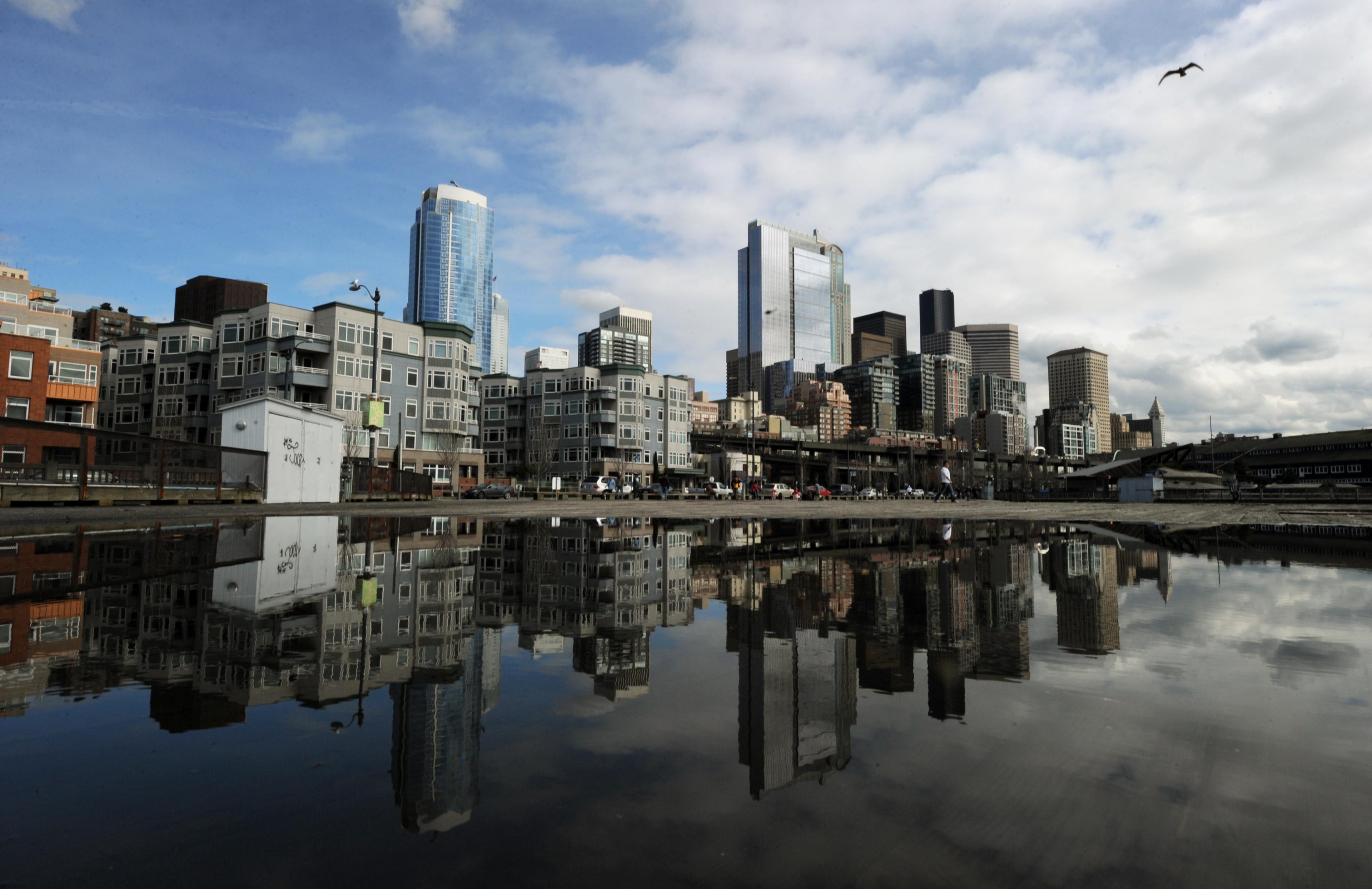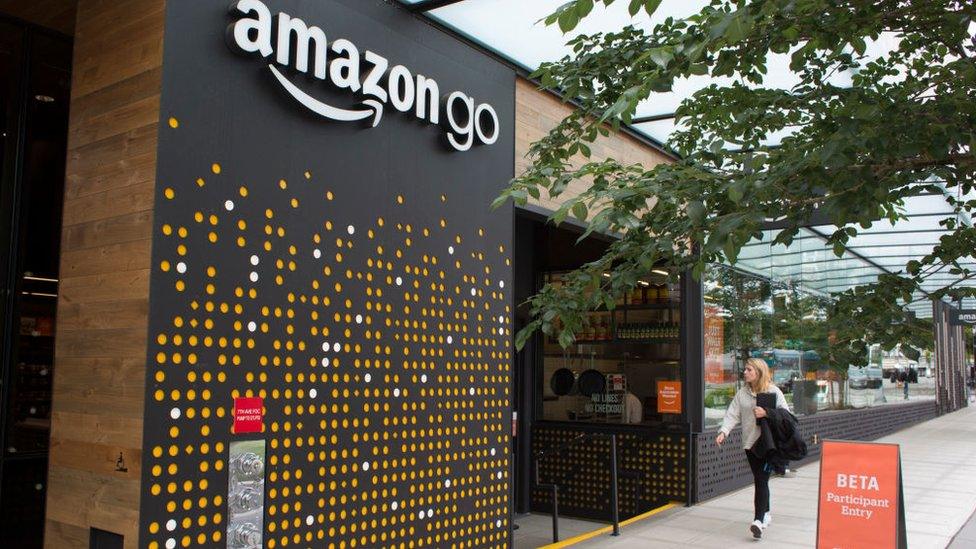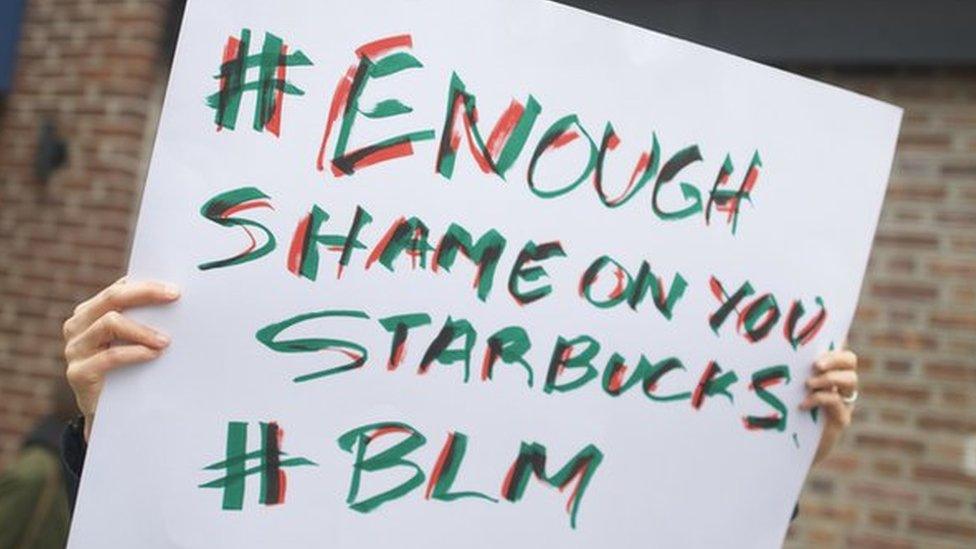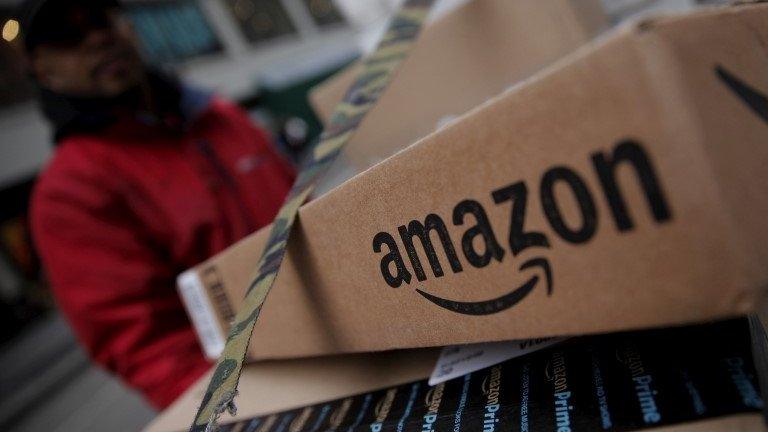Amazon and Starbucks blast Seattle tax to fight homelessness
- Published

Supporters of the tax say property prices have soared in Seattle
Amazon and Starbucks have hit out at a decision to impose a new tax on firms based in Seattle to help fight homelessness.
Amazon, the US city's number one employer, said the levy could put future expansion on hold in the region.
Seattle City Council voted unanimously for the tax, saying it will raise $47m (£35m) to tackle a housing affordability crisis due to a recent economic boom.
But local firms say it will kill jobs.
"We remain very apprehensive about the future created by the council's hostile approach and rhetoric toward larger businesses," said Amazon's vice president Drew Herdener following the vote.
"[It] forces us to question our growth here."
And Starbucks said: "This City continues to spend without reforming and fail without accountability."
The tax will apply to companies with annual sales of least $20m a year, working out at about $275 annually for each worker.
The money will be spent on building more affordable housing and support services for the homeless.

Amazon's corporate headquarters are based in Seattle, Washington
Supporters of the tax cite data showing Seattle's median home prices have soared to $820,000, and more than 41% of renters are classed as "rent-burdened". That means they spend around a third of their income on housing.
'Tax on jobs'
Seattle also has the third-largest concentration of homeless people in the US.
The levy is expected to be imposed on about 500 companies, including Seattle-headquartered firms such as department store chain Nordstrom and coffee chain Starbucks.
It will also affect the California-based tech giants Apple, Google and Facebook, which have a big presence in the city.
But Seattle's Chamber of Commerce said that "taxing jobs will not fix our region's housing and homelessness problems".
And Amazon, which has led local business opposition to the levy, previously warned the levy could put more than 7,000 new jobs at risk.
Following Monday's vote, the e-commerce giant said it would go ahead with plans to build a major new office building in the city centre, despite an earlier threat to shelve the move.
However, it said it was now evaluating whether to lease space in a second office tower, meaning it may move some planned jobs elsewhere.
John Kelley, senior vice president for Starbucks Global Public Affairs, said: "No one believes they will be able to make housing affordable or address opiate addiction [through this tax]."
Seattle previously imposed a so-called "head tax" between 2006 and 2009, but it was repealed in the midst of the recession.
The city of Denver currently has a similar levy, while Chicago had one but repealed it.
- Published16 April 2018

- Published31 March 2018
